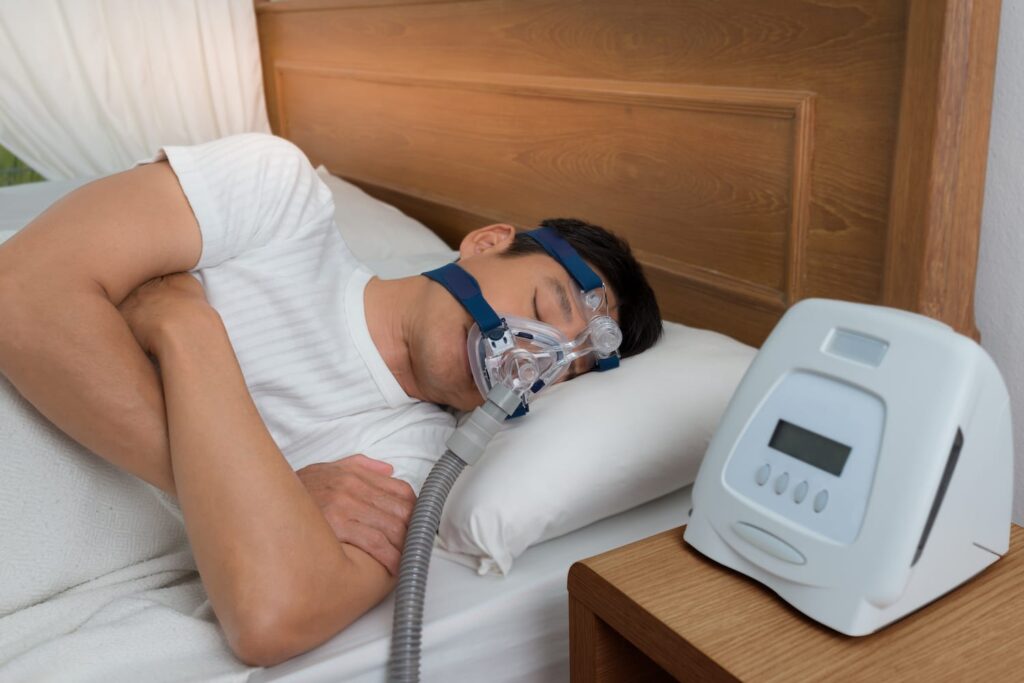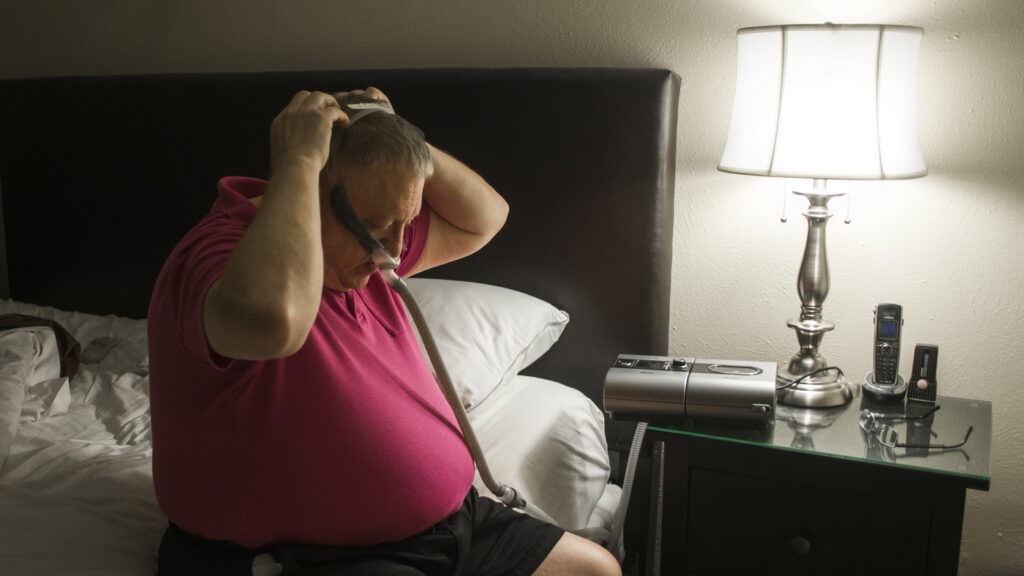Sleep apnea is a common sleep disorder that affects millions of people worldwide. It is characterized by pauses in breathing or shallow breaths while sleeping. These interruptions in breathing can lead to poor sleep quality and other health problems if left untreated. If you suspect you may have sleep apnea, it is important to get a proper diagnosis through a sleep apnea test. However, many people are hesitant to undergo testing due to concerns about the cost. In this article, we will break down the cost of a sleep apnea test and explore the factors that influence it.
Understanding Sleep Apnea Cost
In conclusion, sleep apnea test cost can vary depending on several factors, including insurance coverage, the type of test, and the location of the sleep center or hospital. However, the benefits of early detection and proper diagnosis far outweigh the cost. Sleep apnea can have serious long-term health implications if left untreated. By understanding your insurance coverage, exploring different testing options, and seeking financial assistance if needed, you can navigate the financial aspect of sleep apnea testing and prioritize your health and well-being.
What is Sleep Apnea?
Sleep apnea is a sleep disorder that causes recurrent disruptions in breathing during sleep. These interruptions can last for a few seconds to a minute and can occur multiple times throughout the night. There are three main types of sleep apnea: obstructive sleep apnea, central sleep apnea, and complex sleep apnea syndrome. Obstructive sleep apnea is the most common type and occurs when the throat muscles relax, blocking the airway. Central sleep apnea, on the other hand, is caused by a failure of the brain to send proper signals to the muscles that control breathing. Complex sleep apnea syndrome is a combination of both obstructive and central sleep apnea. If left untreated, sleep apnea can lead to various health issues, including high blood pressure, heart disease, and diabetes.
Obstructive sleep apnea is often associated with excess weight, as the extra soft tissue in the throat can obstruct the airway. It is more prevalent in individuals with a higher body mass index (BMI). Central sleep apnea, on the other hand, is commonly linked to certain medical conditions such as congestive heart failure, stroke, or the use of opioids. Complex sleep apnea syndrome, though less common, presents a unique challenge as it requires a tailored treatment approach that addresses both obstructive and central components simultaneously.

Symptoms and Risks of Sleep Apnea
Some common symptoms of sleep apnea include loud snoring, excessive daytime sleepiness, morning headaches, irritability, and difficulty concentrating. If you experience any of these symptoms, it is important to consult a healthcare professional for a proper evaluation. Sleep apnea can have several risk factors, including obesity, family history, being male, being older, and having a neck circumference greater than 17 inches for men or 16 inches for women.
Individuals with untreated sleep apnea are at a higher risk of developing cardiovascular problems such as hypertension, irregular heartbeats, and even heart attacks. The repeated drops in oxygen levels during apnea episodes put a strain on the heart and can contribute to the development of these conditions over time. Additionally, the chronic sleep deprivation resulting from poor sleep quality can impact cognitive function, leading to memory problems, difficulty concentrating, and decreased productivity during the day. Seeking early diagnosis and appropriate treatment for sleep apnea is crucial in mitigating these risks and improving overall quality of life.
The Importance of Sleep Apnea Testing
Early Detection and Diagnosis
Early detection and diagnosis of sleep apnea are crucial for effective treatment and management. Since sleep apnea can have serious long-term health implications, it is important to identify the condition as early as possible. A sleep apnea test, also known as a sleep study or polysomnography, is the most effective way to diagnose sleep apnea. It measures various physiological parameters during sleep, such as brain activity, eye movement, heart rate, and breathing patterns, to determine if sleep apnea is present. An accurate diagnosis allows healthcare professionals to develop a customized treatment plan that suits the individual’s needs.
During a sleep study, the individual is monitored by specialized equipment that records data throughout the night. This data is then analyzed by sleep specialists to identify patterns indicative of sleep apnea. The information gathered from the sleep study helps healthcare providers understand the severity of the condition and tailor treatment recommendations accordingly. By undergoing this non-invasive test, individuals can take proactive steps towards improving their sleep quality and overall health.
Long-Term Health Implications
Untreated sleep apnea can lead to a range of health problems, including an increased risk of heart disease, stroke, and diabetes. It can also worsen existing conditions such as high blood pressure and respiratory disorders. Additionally, sleep apnea can significantly impact an individual’s quality of life, causing daytime fatigue, difficulty concentrating, and even depression. By undergoing a sleep apnea test and receiving appropriate treatment, individuals can improve their health and overall well-being. Read more about diabetes at https://www.health.harvard.edu/topics/diabetes
Furthermore, untreated sleep apnea can have implications beyond physical health. The chronic sleep deprivation resulting from untreated sleep apnea can strain relationships and hinder performance at work or school. By addressing sleep apnea through testing and treatment, individuals not only safeguard their physical health but also enhance their cognitive function and emotional well-being. Seeking help for sleep apnea is a proactive step towards a healthier and more fulfilling life.
Different Types of Sleep Apnea Tests
Home Sleep Tests
A home sleep test is a convenient and cost-effective option for diagnosing sleep apnea. This test involves wearing a portable sleep monitoring device at home while you sleep. The device records parameters such as airflow, oxygen levels, and breathing patterns. After the test, the collected data is analyzed by a sleep specialist to determine if sleep apnea is present. Home sleep tests are generally recommended for individuals with a high pretest probability of moderate to severe obstructive sleep apnea.
One of the advantages of a home sleep test is the comfort of being in your own bed, which can mimic your typical sleep environment more closely than a sleep center. This can lead to more accurate results as your sleep patterns may be less disrupted. Additionally, home sleep tests are particularly beneficial for individuals who have difficulty sleeping in unfamiliar environments or who require a more convenient testing option due to personal or medical reasons.
In-Lab Sleep Tests
An in-lab sleep test, also known as polysomnography, is a comprehensive sleep study performed in a sleep center or hospital. The test involves staying overnight at the sleep facility, where multiple sensors are attached to your body to monitor various physiological parameters. These sensors measure brain activity, eye movement, muscle activity, heart rate, breathing patterns, and oxygen levels. Trained technicians monitor the data throughout the night to diagnose sleep disorders such as sleep apnea. In-lab sleep tests are usually recommended for individuals with complex medical conditions or suspected cases of central or complex sleep apnea.
During an in-lab sleep test, you will be monitored by experienced sleep technologists who can provide immediate assistance if any issues arise during the night. The controlled environment of a sleep center allows for precise monitoring and evaluation of your sleep patterns, ensuring a comprehensive analysis of your sleep quality and potential sleep disorders. In-lab sleep tests are particularly valuable for individuals who require close monitoring due to underlying health conditions or who may benefit from the expertise of sleep specialists present at the facility.
Read about sleep test Perth at: Everything You Need to Know About Sleep Tests in Perth
Factors Influencing the Cost of Sleep Apnea Tests
Insurance Coverage and Out-of-Pocket Costs
The cost of a sleep apnea test can vary depending on your insurance coverage. Some insurance plans fully cover sleep apnea testing, while others may require copayments or have specific coverage criteria. It is important to contact your insurance provider to understand your coverage and any potential out-of-pocket costs. If you do not have insurance or if your insurance does not cover sleep apnea testing, there are financial assistance programs available to help manage the cost.
The Role of Medical Equipment
The cost of sleep apnea testing can also be influenced by the equipment used during the test. Home sleep tests generally involve less equipment and are therefore less expensive than in-lab sleep tests. Additionally, the type and quality of the monitoring devices used can also affect the overall cost of the test. It is important to discuss the equipment options with your healthcare provider to find a solution that meets your needs and budget. Click here to read more about quality.
Location and Specialist Fees
The location of the sleep center or hospital where the sleep apnea test is conducted can impact the cost. Generally, sleep centers in metropolitan areas tend to have higher fees compared to those in rural areas. The expertise and credentials of the sleep specialists involved in the test can also influence the overall cost. Specialists with more experience and advanced certifications may charge higher fees for their services. It is advisable to research and compare different sleep centers or hospitals to find the most cost-effective option.
Another factor that can affect the cost of sleep apnea tests is the duration of the test itself. Some tests may require overnight monitoring, while others may span multiple nights. The longer the duration of the test, the higher the cost is likely to be. This is because it requires more resources, such as staff and equipment, to conduct a longer test. However, it is important to note that the duration of the test is determined based on the individual’s specific needs and the severity of their sleep apnea.
In addition to the factors mentioned above, the type of sleep apnea being tested can also impact the cost. There are three main types of sleep apnea: obstructive sleep apnea, central sleep apnea, and complex sleep apnea syndrome. Each type may require different tests and treatments, which can vary in cost. Your healthcare provider will determine the most appropriate test based on your symptoms and medical history.

Navigating the Financial Aspect of Sleep Apnea Testing
Understanding Your Insurance Policy
Before undergoing a sleep apnea test, it is crucial to understand your insurance policy and the coverage it offers. Contact your insurance provider to determine if you require preauthorization for sleep apnea testing and the specific criteria for coverage. Additionally, inquire about any potential out-of-pocket costs, such as deductibles or copayments. By being knowledgeable about your insurance coverage, you can plan ahead and avoid unexpected financial burdens.
Seeking Financial Assistance and Payment Plans
If you do not have insurance coverage or find it challenging to manage the cost of a sleep apnea test, there are options available to seek financial assistance. Many sleep centers and hospitals offer payment plans or financial aid programs to help individuals manage the cost of testing. You can inquire about these options directly with the sleep facility or seek advice from patient advocacy organizations or support groups dedicated to sleep apnea.

